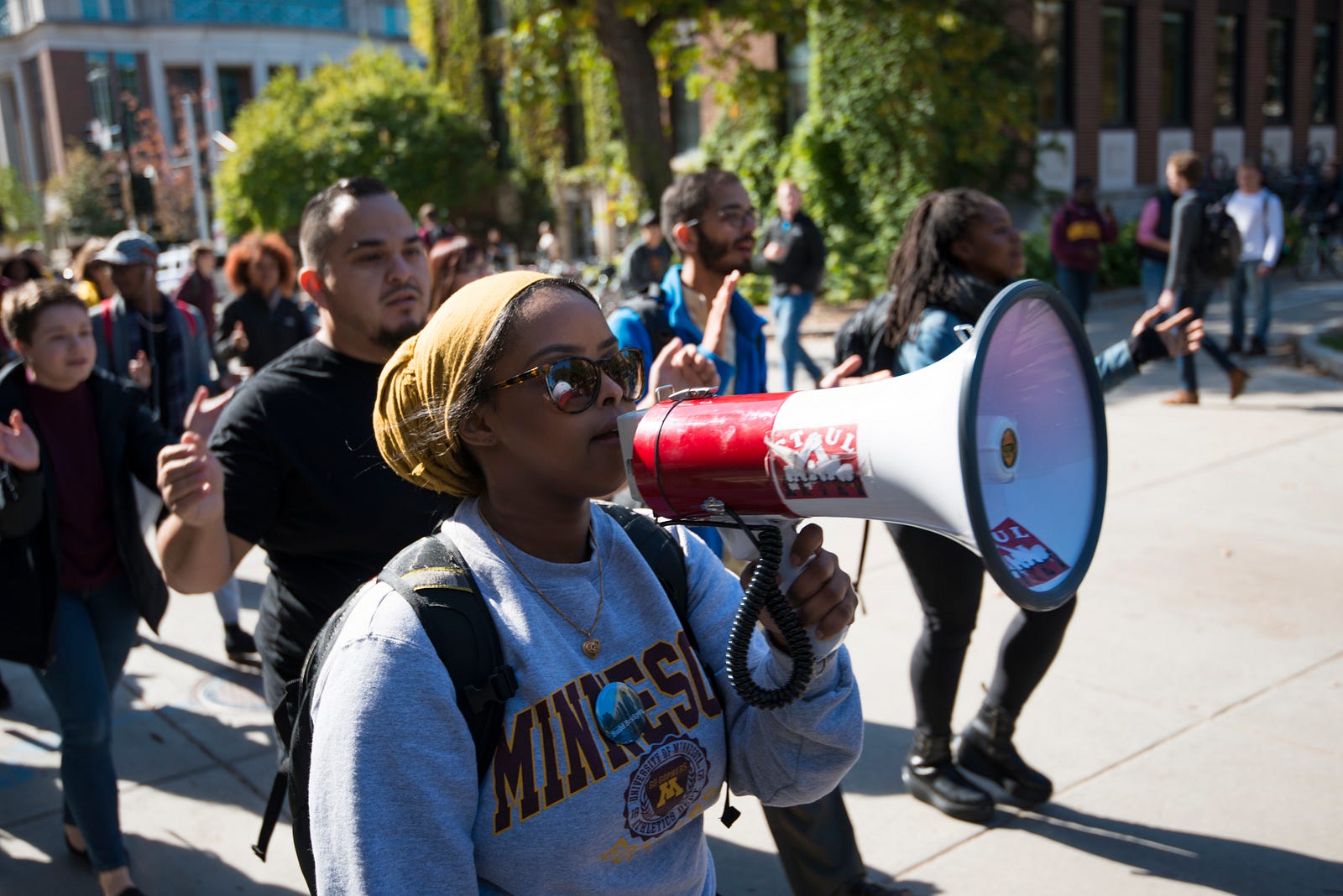- 04 Aug 2018 01:48
#14936940
Knight Foundation recently released a report on the state of free speech on college campuses, which found that students have strong support for the First Amendment, though some say diversity and inclusion are more important to a democracy than free speech.
College students apparently believe that “liberals and other campus groups” are much more able to express their views freely on American college campuses than are “conservatives.”
That is one of the key findings in the latest survey of student attitudes toward Free Speech, conducted by the Gallup Organization under the auspices of Knight Foundation and the American Council on Education (ACE). The difference is significant, with 92 percent saying that liberals find it easy to express themselves, compared to 69 percent who believe that is the case for conservatives.
If this 23 percent disparity should be an accurate description of reality, that would be disturbing, to say the least. It would also reinforce the conventional wisdom that campus conversations about the issues of the day are ruthlessly dominated by the left and that speakers on the right have little chance to be heard.
But there is strong reason to believe that this widespread perception is not entirely accurate. The reality is likely far more complex.
Over the past six months, at Georgetown University, with the help of student researchers, I have built the Free Speech Tracker, an online tool funded by Knight Foundation to monitor free speech controversies across the country. A preliminary analysis of more than 90 incidents — admittedly not necessarily a representative sample — offers evidence that speech and ideas are being suppressed across the political spectrum, and not only on college campuses, but also in U.S. civil society at large. In more than 30 state legislatures across the country, bills have been, and continue to be, considered that could severely threaten First Amendment freedoms.
About two-thirds of the incidents we have examined so far took place at colleges and universities, small or large, public or private. To be sure, there are frequent occasions when speakers from the right are shouted down or interrupted by protesters. However, most of the incidents where presumptively conservative speech has been interrupted or squelched in the last two or three years seem to involve the same few speakers: Milo Yiannopoulos, Ben Shapiro, Charles Murray, and Ann Coulter — all different from each other, and not necessarily allies, but the people most frequently publicized for being at the heart of campus controversies. In some instances, they seem to invite, and delight in, disruption.
And then there’s Richard Spencer, head of the so-called National Policy Institute in Alexandria, VA, and perhaps America’s most ardent publicly known white supremacist, racist and anti-Semite. He generally invites himself to speak at state universities, many of which find they have no legal option to bar him. Most conservatives want nothing to do with him. It is hardly surprising that students who are members of racial, ethnic and religious minorities have little interest in, or respect for, his message, and tend to be unwilling to sit quietly and listen.
Other conservative speakers have encountered protests, but with far less frequency. Gavin McInnes, Dave Rubin, Christina Hoff Summers and Heather Mac Donald are names that come up.
But our data also include many incidents, generally less well-publicized, where lower-profile scholars, speakers, or students who could be considered to be on the left have been silenced or shut down. To cite a few:
At California State University, Fresno, an adjunct professor of American history was removed from his position for sending tweets criticizing President Trump
Professors at Syracuse University and Trinity College were sharply criticized for online comments perceived as calls for violence
At the University of California, San Diego, death threats led to the cancellation of a commencement address by a Princeton professor who had already given one at Hampshire College that was harshly critical of President Trump
At the University of Iowa, a Classics professor was attacked for suggesting that the white color of marble statues from antiquity was the result of their original colors fading over time
The president of Sonoma State University reprimanded a student and apologized for an original poem read by her at commencement that criticized police violence against African Americans
And so it goes, around the country. Often ignored altogether in the public dialogue are the many occasions when there are no protests over speakers on one side or another, or protests are successfully resolved by campus authorities and events go forward as scheduled without disruption or violence.
Some disclaimers are warranted here: The selection of incidents documented on the Free Speech Tracker is by no means comprehensive and never will be. The results thus far are anecdotal, and despite efforts to avoid it, there could be a selection bias in the incidents chosen. And the classification of people whose expression is compromised as being on the “right” or the “left” may well be subjective and arbitrary.
But why does a close review of episodes, one by one, possibly lead to a more subtle conclusion than the recent Gallup survey? Could it be that the students who were interviewed are reflecting the long-running stereotype of campus culture that permeates the media, rather than their own observed reality?
Much data collection and analysis remain to be done. But one among many untested concepts is whether the survey results would be different if conservative student groups, instead of repeatedly inviting campus visitors who have built a brand of disruption, were to sponsor serious intellectual dialogue with thinkers on the right.




